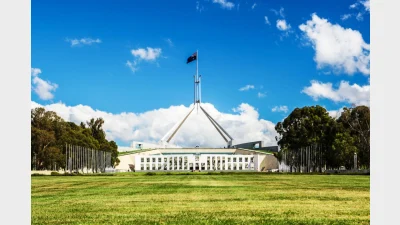Independent trustee venture targets governance uplift



Former ASIC and APRA leaders launch a conflict-free model to meet rising prudential expectations.
Two former financial regulator heavyweights, James Shipton and Stephen Glenfield, have launched a new independent superannuation trustee business designed to lift governance standards and rebuild confidence across the sector.
The venture, Super Trustees Australia (STA), has positioned itself as an alternative to vertically integrated structures.
It aims to provide funds with independent oversight and conflict-free decision-making at a time of heightened regulatory scrutiny under APRA’s SPS 515 standard.
Shipton, who previously chaired the Australian Securities and Investments Commission, will lead STA as independent chair, while Glenfield (a former APRA Superannuation Industry Group chair and ex-FASEA chief executive) has joined as independent director.
The management team also includes Nick Brookes as managing director, alongside Mitchell Petrie and company secretary Natasha Quirk.
In announcing the new venture, Shipton said: “We are entering a time when members, funds and regulators must focus on a common goal: strengthening trust in the superannuation ecosystem.”
Shipton added that true trusteeship required more than compliance.
“Adherence to laws and regulators is foundational, but at its core effective superannuation governance is about proper stewardship.
“Superannuation members deserve a return to genuine trusteeship and proof that independence and accountability are real, not rhetorical.”
Glenfield said the new prudential standard provided an opportunity to reset expectations.
“Governance has become more complex since the Royal Commission, but effectiveness has not always kept pace.”
“SPS 515 brings structure and substance back together. It is about ensuring boards are genuinely fit for purpose, with the clarity, capability and confidence to meet higher expectations.”
STA describes its structure as purpose-built for SPS 515 and beyond, offering independent trusteeship that allows funds to retain their own culture and member focus while outsourcing fiduciary and governance responsibilities. The firm claims its independence will help remove conflicts linked to ownership or product alignment.
The launch comes amid an intensifying focus on trustee accountability and strategic decision-making.
APRA’s supervisory program has already signalled greater attention to board capability, risk culture and investment governance, with several mid-sized funds now considering alternative trustee models to meet the regulator’s expectations.
Industry observers view STA’s entry as part of a broader shift towards “trustee-for-hire” arrangements, a model that has grown rapidly as funds weigh consolidation against maintaining operational independence.
Reports suggest the group is already in discussions with multiple funds and could assume around A$7 billion in mandates during 2026.
For Shipton and Glenfield, both of whom have spent years shaping and enforcing the system’s regulatory foundations, the move represents a return to principle-based governance.
As Shipton noted, “The governance bar is higher than ever. Our role is to ensure that trusteeship remains a source of confidence, not compliance fatigue.”
APRA’s latest supervision priorities update underscored the relevance of such models: deputy chair Margaret Cole has recently reminded trustees that SPS 515 “must drive tangible, measurable improvements in member outcomes, not just a paper exercise.”
Recommended for you
ASFA has launched a central online hub to help super funds, employers and service providers prepare for Payday Super reforms.
The Super Members Council is calling on the government and regulators to impose additional safeguards to prevent superannuation switching harm and has put forward multiple suggestions for improvements.
The Assistant Treasurer has reaffirmed the government’s commitment to strengthening retirement outcomes, consumer protections and cyber resilience in superannuation.
The industry super fund has advanced reconciliation efforts with a new initiative focused on improving outcomes for First Nations members.









